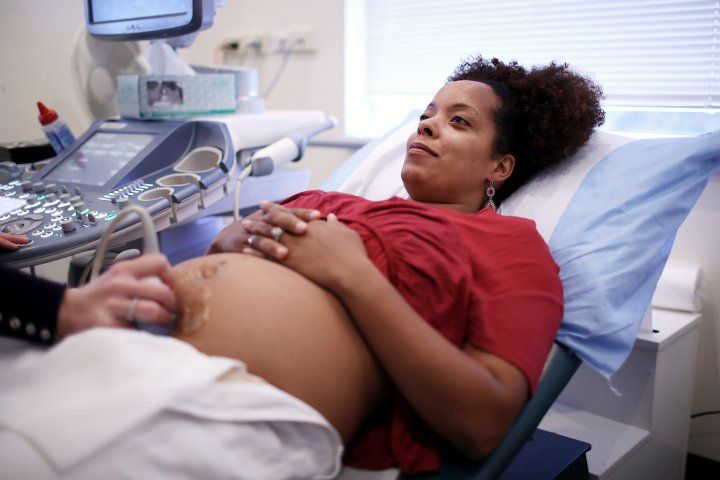Maternal Stress During Pregnancy Linked to Infant Illness

Greater maternal stress during pregnancy is linked with significant increases in the number and variety of infant illness during the first year of life, independent of the level of stress after birth, according to a study led by researchers at UC San Francisco.
The study, published Aug. 19, 2020, in the Journal of Pediatrics, looked at possible links between infant health and maternal perceptions of stress during and after pregnancy. The study involved 109 low-income, racially and ethnically diverse overweight women with an average age of 28 years. For the study, the women rated on a five-point scale how stressed they felt by challenges in their lives during middle and late pregnancy.
The researchers assessed the health of the infants across the first year of life by examining their medical records. For every 1-point increase in reported prenatal maternal stress, the research team found a 38 percent increase in infectious illness, a 73 percent increase in non-infectious illness and a 53 percent increase in variety of illnesses among the infants.
“The effect was even stronger for stress experienced during the latter part of pregnancy, suggesting this may be a sensitive period for fetal development related to health after birth,” said first author Nicole Bush, PhD, an associate professor of psychiatry and pediatrics at UCSF who also is affiliated with UCSF Benioff Children’s Hospitals and the UCSF Weill Institute for Neurosciences.
In the year after the birth of their babies, the mothers in the study also reported retrospectively on whether they had experienced major illness, the death of loved ones, being the victim of a crime, relationship problems, housing difficulties, legal issues or financial problems during pregnancy. Major stressful life events were common, with 47 percent reporting three or more events, 39 percent reporting one to two events and 14 percent reporting no such events.
Notably, after they adjusted for prenatal stress, the researchers found that postnatal stress and depression in the mothers were not associated with any increase in illness among the infants. “These results are in line with a growing body of research indicating that stress to the mother during pregnancy, especially late pregnancy, has a negative impact on the health of the baby, independent of whatever stress or emotional challenges the mother might experience after giving birth,” said Bush.
“This reinforces the case that screening for stress and support for stress reduction during pregnancy can benefit both mother and child, potentially improving outcomes across generations and reducing costs to society.” The mothers in the study were participants in the ongoing Stress, Eating, and Early Development (SEED) study for which Bush is the principal investigator. SEED is a longitudinal study designed to investigate the association between prenatal stress and weight gain on child health and development in communities experiencing high levels of social adversity.
Bush cautioned that since the mothers in the study were all overweight and obese, the results might not be generalizable for other populations.
“However, 60 to 68 percent of American women of childbearing age were overweight or obese during the study enrollment period, with even higher rates among African-American, Hispanic/Latina and Mexican-American women,” she noted. “Our sample may actually be more representative of American mothers than typical research populations, and that is one value of this work.”
Bush added that the high level of adversity reported by women was another strength of the study. “We need samples that represent those most likely to experience high levels of stress during pregnancy if we are to understand and prevent intergenerational transmission of risk for poor health,” she said.
The senior author of the study is Elissa Epel, PhD, professor and vice chair in the UCSF Department of Psychiatry. Coauthors are Michael Coccia, MS, Karen Jones-Mason, JD, MSW, PhD, Nancy Adler, PhD, W. Thomas Boyce, MD, of UCSF; Jennifer Savitz, MD, of UCSF, the University of Washington and Seattle Children’s Hospital; and Barbara Laraia, PhD, of UC Berkeley.
The University of California, San Francisco (UCSF) is exclusively focused on the health sciences and is dedicated to promoting health worldwide through advanced biomedical research, graduate-level education in the life sciences and health professions, and excellence in patient care. UCSF Health, which serves as UCSF’s primary academic medical center, includes top-ranked specialty hospitals and other clinical programs, and has affiliations throughout the Bay Area.